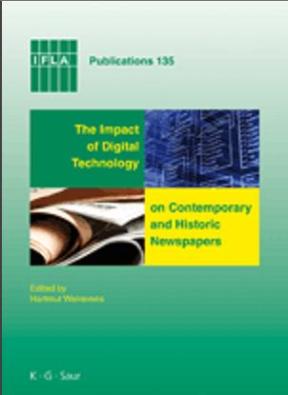An academic library consortium based in Australia has established that understanding the effects of generational change help recognize and anticipate the future professional development needs of library and information workers. Findings of a survey indicate that for the former generation (1960-1980), “the more they learn the more they stay” and for the new generation (1980-2000), “continuous learning is a way of life”. This compels academic libraries to use better strategies to attract and keep the right staff from both generations.
Historical events, economic trends and social upheavals have definitely an impact on a generation that usually takes about twenty years to reach full economic maturity. Friction and change that often arise between generations are not new phenomena. It also includes the different interactions in the workplace where three or even four generations are represented. The academic libraries are exposed to continuous technological change and could be at the risk of marginalization if generational change is not managed effectively. Consequently, recruiting and retaining new library professionals are critical to secure the future of academic libraries.
To attract and keep a new cohort of library professionals, libraries need to consider a range of enticements that align directly with the core values and characteristics of both generations. Selection of staff incorporates added skills such as teaching, marketing and promotion and liaison roles with academic departments. The learning style of the former generation is generally given more consideration because it is motivated by a desire to enhance professional skills. In addition, their thinking is clear; they work across a range of professions whilst they remain with an organization for a longer term. The new generation on the contrary looks for transferable careers whilst its needs extend to a greater degree of personal flexibility, professional satisfaction and immediacy. The new generation can also afford to be fussy in its choice of employment and employer as social networking technologies become more pervasive and there is a trend towards “smaller entrepreneurial operations”. For the new generation, born since the advent of the Internet, self-employment is a real alternative. It provides additional career challenges such as moving to knowledge Management, Administration or Public Relations where better opportunities for skills development and personal flexibility exist. Hence, for the new generation, continuous learning is a way of life and the “talent squeeze” of younger professionals is increasingly becoming in the composition of the actual librarianship workload.
As a result, three simple strategic measures are employed during the selection process of library professionals to satisfy the rigours of the academic libraries. These are:
1. Value the individual – in word and deed
Flexible workplaces and work-life balance should be part of the nuts and bolts of the work environment, along with a fair share of remuneration for the library professionals. These “basics” avoid talented staff to compare and contrast elsewhere. While both generations of staff work together, factors such as the degree to which they will be respected as individuals and colleagues in the workplace, how their ideas are valued, how they will be developed professionally, and how they are supervised are considered. There is no value, for example, in offering flexible work hours at an organizational level if supervisors or outdated work practices make their application problematic at the operational level.
2. Provide plentiful access to meaningful professional development opportunities
It is a fact that professional development preferences of the library workforce are moving inexorably away from higher-level conceptual matters towards more vocational and work-based skills. The library workforce is looking for professional development that is directly relevant to their needs, credible, convenient, good value for money, and above all, practical which is related to outcomes and outputs. Professional development must have meaning and training must be effective, relevant, interactive, personalized, and entertaining.
3. Provide rich and varied access to mentors and other living career guides
Despite an apparent confidence and independence, both the old and new generations do not have all the answers. Like generations before them, they still require guidance from older and hopefully wiser colleagues. Hence, academic libraries looking to attract and retain staff into the future provide access to a mentor or coach as part of any employment package.
In short, the understanding of generational change and commitment to professional development plays a critical role in the recruitment and retention efforts of future academic libraries. Seniority as a concept has almost ceased to have meaning in many contemporary work settings. In addition, merit selection and the “talent squeeze” are causing later generations to leap ahead of earlier generations in terms of responsibilities and remuneration. The same scenario is mirrored in the local context too. For a long term success, the academic libraries could consider giving library workers similar variety of work and attractive opportunities for their professional growth and development.
Lalita Chumun
REFERENCE
Sayers, R., 2007. The right staff from X to Y: generational change and professional development in future academic libraries. Library Management. 28 (8/9)

